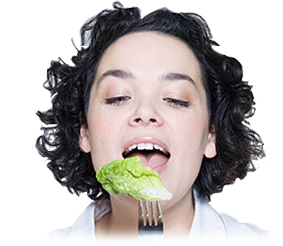Alfaris N, Wadden TA, Sarwer DB, et al. Effects of a 2-year behavioral weight loss intervention on sleep and mood in obese individuals treated in primary care practice. Obesity (Silver Spring). 2015;23(3):558-564. PMID: 25611944 www.ncbi.nlm.nih.gov/pubmed/25611944.
Ali M, El Chaar M, Ghiassi S, Rogers AM; American Society for Metabolic and Bariatric Surgery Clinical Issues Committee. American Society for Metabolic and Bariatric Surgery updated position statement on sleeve gastrectomy as a bariatric procedure. Surg Obes Relat Dis. 2017;13(10):1652-1657. PMID: 29054173 www.ncbi.nlm.nih.gov/pubmed/29054173.
American College of Cardiology/American Heart Association Task Force on Practice Guidelines, Obesity Expert Panel, 2013. Expert Panel Report: Guidelines (2013) for the management of overweight and obesity in adults. Obesity (Silver Spring). 2014;22 Suppl 2:S41-S410. PMID: 24227637 www.ncbi.nlm.nih.gov/pubmed/24227637.
American College of Obstetricians and Gynecologists. ACOG practice bulletin no. 105: bariatric surgery and pregnancy. Obstet Gynecol. 2009;113(6):1405-1413. Reaffirmed 2017. PMID: 19461456 www.ncbi.nlm.nih.gov/pubmed/19461456.
Apovian CM, Aronne LJ, Bessesen DH, et al. Pharmacological management of obesity: an Endocrine Society clinical practice guideline. J Clin Endocrinol Metab. 2015;100(2):342-362. PMID: 25590212 www.ncbi.nlm.nih.gov/pubmed/25590212.
Arterburn DE, Courcoulas AP. Bariatric surgery for obesity and metabolic conditions in adults. BMJ. 2014 Aug 27;349:g3961. PMID: 25164369 www.ncbi.nlm.nih.gov/pubmed/25164369.
ASMBS Clinical Issues Committee. Peri-operative management of obstructive sleep apnea. Surg Obes Relat Dis. 2012;8(3):e27-e32. PMID: 22503595 www.ncbi.nlm.nih.gov/pubmed/22503595.
ASMBS Clinical Issues Committee. Updated position statement on sleeve gastrectomy as a bariatric procedure. Surg Obes Relat Dis. 2012;8(3):e21-e26. PMID: 22417852 www.ncbi.nlm.nih.gov/pubmed/22417852.
Bray GA. Obesity. In: Feldman M, Friedman LS, Brandt LJ, eds. Sleisenger and Fordtran's Gastrointestinal and Liver Disease. 10th ed. Philadelphia, PA: Elsevier Saunders; 2016:chap 7.
Centers for Disease Control and Prevention website. Rethink your drink. www.cdc.gov/healthyweight/healthy_eating/drinks.html. Updated September 23, 2015. Accessed December 11, 2017.
Centers for Disease Control and Prevention website. Healthy weight: Finding a Balance. Updated November 16, 2016. www.cdc.gov/healthyweight/calories. Updated November 16, 2016. Accessed December 11, 2017.
Chakravartty S, Tassinari D, Salerno A, Giorgakis E, Rubino F. What is the mechanism behind weight loss maintenance with gastric bypass? Curr Obes Rep. 2015;4(2):262-268. PMID: 26627220 www.ncbi.nlm.nih.gov/pubmed/26627220.
Courcoulas AP, Yanovski SZ, Bonds D, et al. Long-term outcomes of bariatric surgery: a National Institutes of Health symposium. JAMA Surg. 2014;149(12):1323-1329. PMID: 25271405 www.ncbi.nlm.nih.gov/pubmed/25271405.
Davies MJ, Bergenstal R, Bode B, et al. Efficacy of liraglutide for weight loss among patients with type 2 diabetes: The SCALE diabetes randomized clinical trial. JAMA. 2015;314(7):687-699. PMID: 26284720 www.ncbi.nlm.nih.gov/pubmed/26284720.
Ding SA, Simonson DC, Wewalka M, et al. Adjustable gastric band surgery or medical management in patients with type 2 diabetes: a randomized clinical trial. J Clin Endocrinol Metab. 2015;100(7):2546-2556. PMID: 25909333 www.ncbi.nlm.nih.gov/pubmed/25909333.
Dogan K, Gadiot RP, Aarts EO, et al. Effectiveness and safety of sleeve gastrectomy, gastric bypass, and adjustable gastric banding in morbidly obese patients: a multicenter, retrospective, matched cohort study. Obes Surg. 2015;25(7):1110-1118. PMID: 25408433 www.ncbi.nlm.nih.gov/pubmed/25408433.
Driscoll S, Gregory DM, Fardy JM, Twells LK. Long-term health-related quality of life in bariatric surgery patients: a systematic review and meta-analysis. Obesity (Silver Spring). 2016;24(1):60-70. PMID: 26638116 www.ncbi.nlm.nih.gov/pubmed/26638116.
Eckel RH, Jakicic JM, Ard JD, et al. 2013 AHA/ACC guideline on lifestyle management to reduce cardiovascular risk: a report of the American College of Cardiology American/Heart Association Task Force on Practice Guidelines. Circulation. 2014;129(25 Suppl 2):S76-S99. PMID: 24222015 www.ncbi.nlm.nih.gov/pubmed/24222015.
Golomb I, Ben David M, Glass A, Kolitz T, Keidar A. Long-term metabolic effects of laparoscopic sleeve gastrectomy. JAMA Surg. 2015;150(11):1051-1057. PMID: 26244446 www.ncbi.nlm.nih.gov/pubmed/26244446. Klein S, Romijn JA. Obesity. In: Melmed S, Polonsky KS, Larsen PR, Kronenberg HM, eds. Williams Textbook of Endocrinology. 13th ed. Philadelphia, PA: Elsevier; 2016:chap 36.
Kroes M, Osei-Assibey G, Baker-Searle R, Huang J. Impact of weight change on quality of life in adults with overweight/obesity in the United States: a systematic review. Curr Med Res Opin. 2016;32(3):485-508. PMID: 26652030 www.ncbi.nlm.nih.gov/pubmed/26652030.
Magnuson T, Schweitzer MA. The management of morbid obesity. In: Cameron JL, Cameron AM, eds. Current Surgical Therapy. 12th ed. Philadelphia, PA: Elsevier; 2017:105-108.
Mechanick JI, Youdim A, Jones DB, et al. Clinical practice guidelines for the perioperative nutritional, metabolic, and nonsurgical support of the bariatric surgery patient--2013 update: cosponsored by American Association of Clinical Endocrinologists, the Obesity Society, and American Society for Metabolic & Bariatric Surgery. Surg Obes Relat Dis. 2013;9(2):159-191. PMID: 23537696 www.ncbi.nlm.nih.gov/pubmed/23537696.
COUNCIL ON COMMUNICATIONS AND MEDIA. Media and young minds. Pediatrics. 2016;138(5). pii: e20162591. PMID: 27940793 www.ncbi.nlm.nih.gov/pubmed/27940793.
Mingrone G, Panunzi S, De Gaetano A, et al. Bariatric-metabolic surgery versus conventional medical treatment in obese patients with type 2 diabetes: 5 year follow-up of an open-label, single-centre, randomised controlled trial. Lancet. 2015;386(9997):964-973. PMID: 26369473 www.ncbi.nlm.nih.gov/pubmed/26369473.
Ogden CL, Carroll MD, Fryar CD, Flegal KM. Prevalence of obesity among adults and youth: United States, 2011–2014. NCHS Data Brief. 2015;(219):1-8. PMID: 26633046 www.ncbi.nlm.nih.gov/pubmed/26633046.
Pi-Sunyer X, Astrup A, Fujioka K, et al. A randomized, controlled trial of 3.0 mg of liraglutide in weight management. N Engl J Med. 2015;373(1):11-22. PMID: 26132939 www.ncbi.nlm.nih.gov/pubmed/26132939.
Purcell K, Sumithran P, Prendergast LA, Bouniu CJ, Delbridge E, Proietto J. The effect of rate of weight loss on long-term weight management: a randomized controlled trial. Lancet Diabetes Endocrinol. 2014;2(12):954-962. PMID: 25459211 www.ncbi.nlm.nih.gov/pubmed/25459211.
Richards WO. Morbid obesity. In: Townsend CM Jr, Beauchamp RD, Evers BM, Mattox KL, eds. Sabiston Textbook of Surgery. 20th ed. Philadelphia, PA: Elsevier; 2017:chap 45.
Schauer PR, Mingrone G, Ikramuddin S, Wolfe B. Clinical outcomes of metabolic surgery: efficacy of glycemic control, weight loss, and remission of diabetes. Diabetes Care. 2016;39(6):902-911. PMID: 27222548 www.ncbi.nlm.nih.gov/pubmed/27222548.
Schoen JA. Obesity and surgical weight loss. In: McNally PR, ed. GI/Liver Secrets Plus. 5th ed. Philadelphia, PA: Elsevier Saunders; 2015:chap 77.
Styne DM, Arslanian SA, Connor EL, et al. Pediatric obesity-assessment, treatment, and prevention: an endocrine society clinical practice guideline. J Clin Endocrinol Metab. 2017;102(3):709-757. PMID: 28359099 www.ncbi.nlm.nih.gov/pubmed/28359099.
U.S. Department of Health and Human Services and U.S. Department of Agriculture website. 2015 - 2020 Dietary Guidelines for Americans. 8th ed. health.gov/dietaryguidelines/2015/resources/2015-2020_Dietary_Guidelines.pdf. Updated December 2015. Accessed Accessed December 11, 2017.
Zuberi KA, Magnuson T, Schweitzer MA. Laparoscopic surgery for morbid obesity. In: Cameron JL, Cameron AM, eds. Current Surgical Therapy. 12th ed. Philadelphia, PA: Elsevier; 2017:1597-1607.
The information provided herein should not be used during any medical emergency or for the diagnosis or treatment of any medical condition. A licensed medical professional should be consulted for diagnosis and treatment of any and all medical conditions. Links to other sites are provided for information only -- they do not constitute endorsements of those other sites. No warranty of any kind, either expressed or implied, is made as to the accuracy, reliability, timeliness, or correctness of any translations made by a third-party service of the information provided herein into any other language. © 1997-
A.D.A.M., a business unit of Ebix, Inc. Any duplication or distribution of the information contained herein is strictly prohibited.














